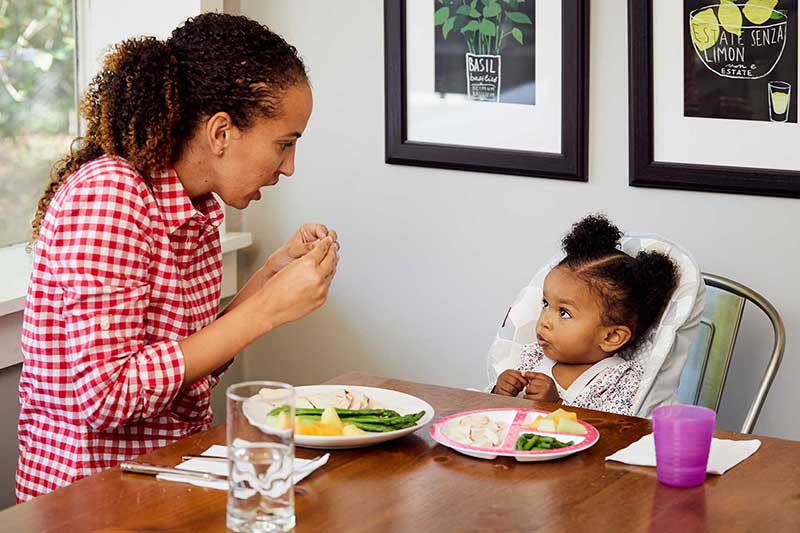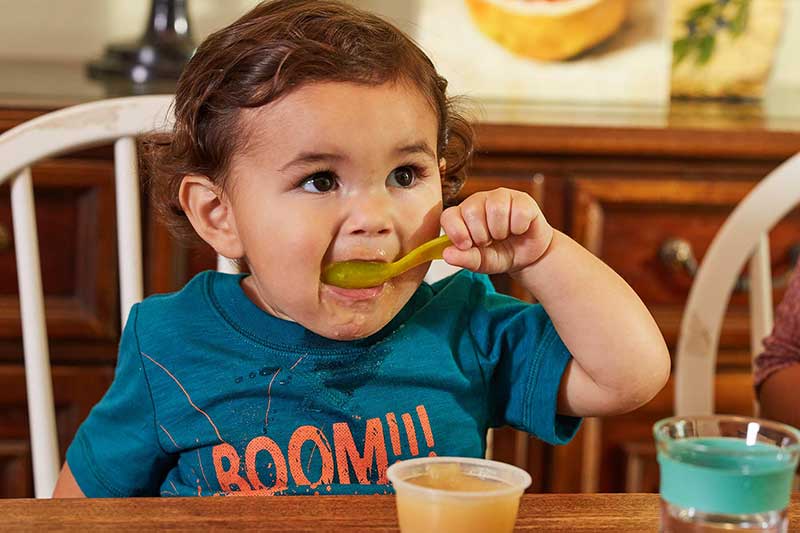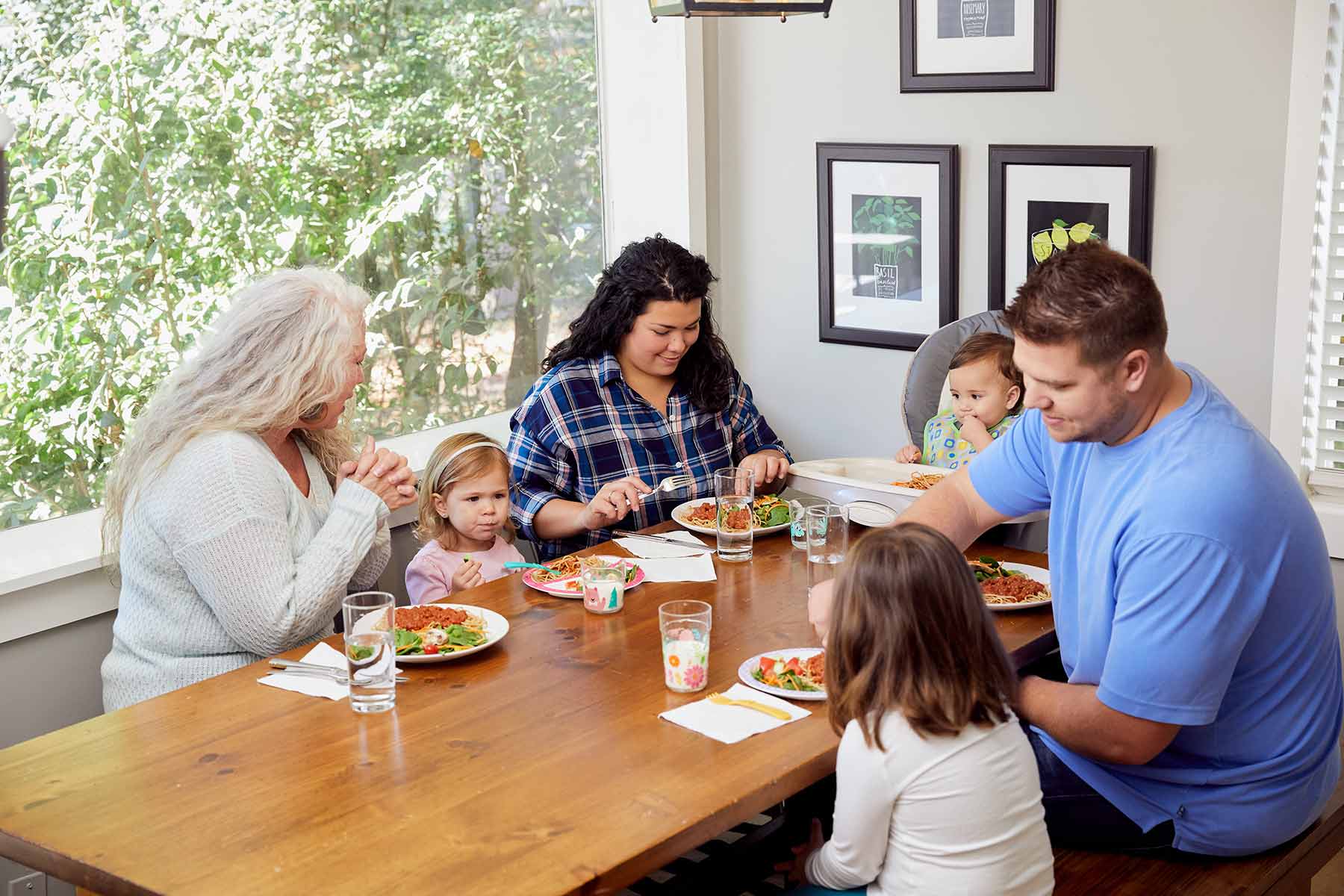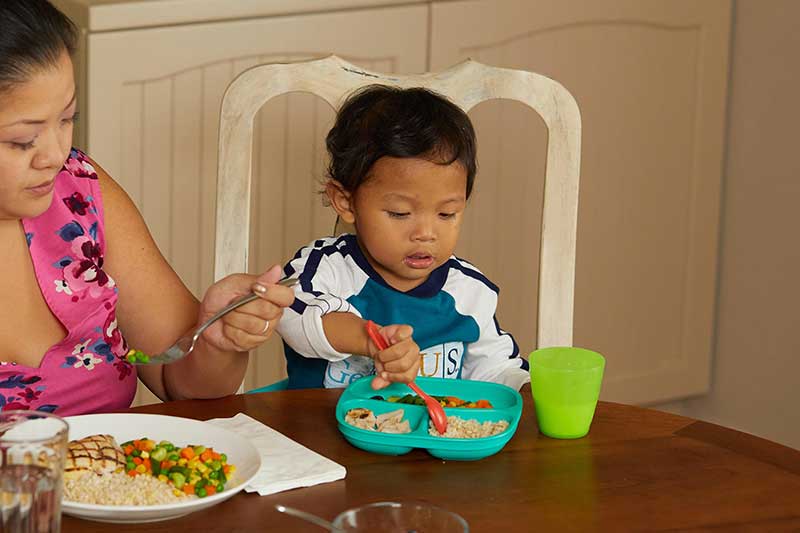How Mindful Eating Can Help Babies and Toddlers
By making family meals a priority and taking the time to really enjoy our food and one another’s company, we can help our children grow up to have a healthy relationship with food for life. One way to do this is by practicing mindful eating. Follow these 5 tips to not only teach your little one to self-regulate and pay better attention to the hunger and fullness cues they were born with, but also to enjoy family meals again.

5 tips for teaching mindful eating early on
- Give your child a place at the table. If everyone is sitting together, your child is more likely to try new foods and eat what you are eating. Plus, it creates good habits by teaching them to sit and eat during snacks and meals instead of getting up and wandering around or playing.
- Make mealtimes distraction-free. A big part of mindful eating is learning to enjoy the tastes and flavors of foods and understanding what it feels like to be hungry vs. full. If your child is watching a movie or playing with a game or toy, they may be too distracted to pay attention to those cues, and they may end up more or less than they need.
- Have a conversation. Snacks and meals are a great time to bond with your little one. Plus, when they are talking and telling stories in between bites, they are more likely to eat slower—allowing them time to recognize their hunger and fullness cues. Get your child talking with open-ended questions such as, “What is the best thing that happened today?”
- Teach and reinforce table manners. Even as a toddler, your child can learn to say or use sign language cues for “all done,” “more,” “please,” “thank you” and “milk.” Encourage your child to ask for more food or to tell you when they are “all done,” instead of serving more when the plate is empty or taking the plate away when they seem distracted.
- Talk to your child about how their belly feels. Encourage your child to pay attention to how full their tummy feels as they eat and to eat slowly so they can recognize their fullness cues. If your child has a tendency to eat fast so that they can get back to playing, remind them that the toys can wait and that they need to slow down and listen to their tummy.


